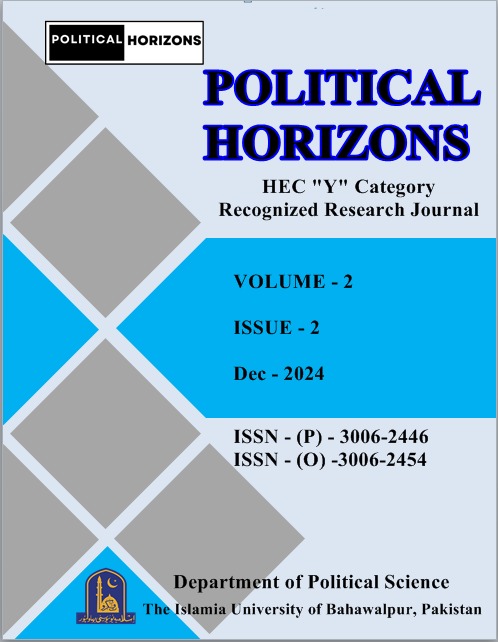Contemporary Issues of Public Administration in Pakistan: A Way Forward
Abstract
Since birth, Pakistan is struggling to maintain balance of power between its political, economic, and religious dynamics leading towards corruption, ethnic conflicts, military interference in the political matters, religious extremism, and economic issues. The military had played a pivotal role in shaping political horizons of the country through its multiple back and front-stage interventions in the form of martial laws. Therefore, this study comprehensively sheds light into contemporary issues in public administration such as weak governance, bureaucratic hurdles, financial distress, and many other problems faced by public institutions of Pakistan and recommend suitable framework to resolve these issues. This study took motivation from past literature and is descriptive and analytical in nature. The inefficient government failed the country to meet its economic and social development targets. Moreover, the incoherency and ineffectiveness of decentralization has paralyzed the operational capacity of the bureaucracy, while short term, unplanned and politically inspired actions taken by weak governments deteriorated the system and worsened the inefficiency of public institutes. Therefore, there is a need for sound stable policies and that is only possible with political stability in the country. Secondly, there is dire need to focus on evolution and continuity in public policy making, democratic governance, and long-term planning for economic development in the country. In this regard, the government of Pakistan should incorporate technology in its practices by bring the e-government initiatives and make it compulsory for all the public institutions because it will enhance the transparency and accountability of public institutions.
Keywords: Bureaucracy, E-Government, Governance, Pakistan, Public Institutions

Downloads
Published
How to Cite
Issue
Section
License
Copyright (c) 2024 Dr. Dawood Nawaz, Shahbaz Ali Khan, Ayesha Umar

This work is licensed under a Creative Commons Attribution-NonCommercial 4.0 International License.




